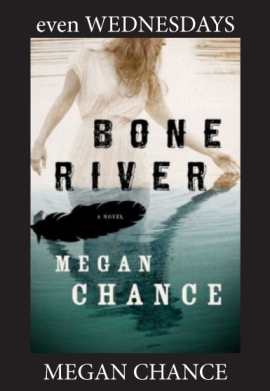 I’ve just returned from a session with my critique partner, where we spent the day discussing the manuscript pages we’d traded with each other the week before. As I’ve mentioned before, in other blogs, we generally trade for the first time around the 200-250 page mark, and so she’d had 250 of my stunning, every-word-a-pearl pages to devour. Which she did. With claws and teeth and tiny little, painful nips. I trust her implicitly, which doesn’t mean that I don’t argue with her, or that I take everything she says as gospel. And that is the heart of a critique partnership: you, the author, have as much responsibility to get what you need from it as your partner has in offering honesty and truth.
I’ve just returned from a session with my critique partner, where we spent the day discussing the manuscript pages we’d traded with each other the week before. As I’ve mentioned before, in other blogs, we generally trade for the first time around the 200-250 page mark, and so she’d had 250 of my stunning, every-word-a-pearl pages to devour. Which she did. With claws and teeth and tiny little, painful nips. I trust her implicitly, which doesn’t mean that I don’t argue with her, or that I take everything she says as gospel. And that is the heart of a critique partnership: you, the author, have as much responsibility to get what you need from it as your partner has in offering honesty and truth.
I think many people don’t understand this. And as a result, they are frustrated and annoyed by the critiques they receive. But developing this kind of a partnership or group takes time and effort, and it doesn’t mean you get to just sit back and absorb or reject what people are saying to you. If you truly want to make the book better—and that is also your job, to decide just how much you really do—then it is your obligation to ask questions.
In my experience, it is much more common for agents, editors and critique partners to know that there is a problem, without knowing exactly what that problem really is. They are often reacting to a symptom, not a cause. It is your job to delve deeper. When someone says: “I don’t like your heroine,” you must ask “Why not?” and keep asking questions until you get to the root of it. A comment like: “I don’t believe this would happen,” should have you asking, “What would you believe?” “The character wouldn’t do that,” requires you to ask, “Why do you think so?” or “What do you think they would do?” These questions can help you see that perhaps it’s not the character that’s the problem, but the plot you put him in. Or that perhaps your reader is reacting to something entirely different.
It is also your responsibility to understand the limitations of your critique partners, to know and understand their hot buttons. If you give a story about a dog to someone who despises dogs and dog stories, you’re just asking for trouble, and you deserve what you get.
Getting the most out of a critique is a skill, and one that, as a writer, you should cultivate. If you’re going to bother asking someone for his opinion, you need to understand it. If you want to make the story the best it can possibly be, it is your responsibility to ask the questions that can help it to be that.
Our first reaction always is to dismiss opinions we don’t agree with. Or to be angry and stop listening. But you’ll be doing your manuscript—and your development as an author—a grave disservice if you do. Understanding what a critiquer is really saying is the key to understanding your own manuscript, even if you don’t agree. Because your ability to discover what they are truly saying could be the difference between selling it and locking it away in a drawer forever.
 Megan Chance is the critically acclaimed, award-winning author of several novels. The Best Reviews has said she writes “Fascinating historical fiction.” Her books have been chosen for the Borders Original Voices program and IndiBound’s Booksense. A former television news photographer with a BA from Western Washington University, Megan Chance lives in the Pacific Northwest with her husband and two daughters. Find her at: http://www.MeganChance.com.
Megan Chance is the critically acclaimed, award-winning author of several novels. The Best Reviews has said she writes “Fascinating historical fiction.” Her books have been chosen for the Borders Original Voices program and IndiBound’s Booksense. A former television news photographer with a BA from Western Washington University, Megan Chance lives in the Pacific Northwest with her husband and two daughters. Find her at: http://www.MeganChance.com.
Site: http://www.meganchance.com/
Twitter: www.twitter.com/MeganSChance
Facebook: https://www.facebook.com/pages/Megan-Chance/116492864590
